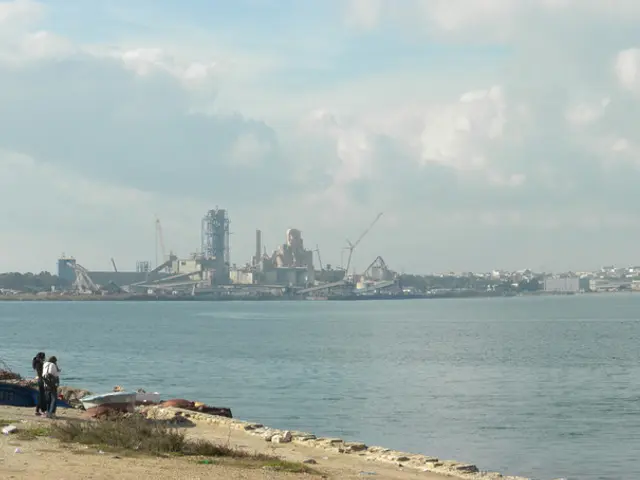Study Reveals Germans Split on Extending Renewable Energy Sources
In a recent survey conducted by the market and opinion research institute Forsa for "Der Spiegel" and RTL Germany, opinions on Germany's reliance on renewable energy are divided. The survey, which was conducted via telephone interviews on August 7 and 8, polled 1,003 respondents.
The findings reveal that 30% of the public consider Germany's current approach to renewable energy just right. However, 32% believe Germany is relying too heavily on renewable energy, and 34% think Germany is not using enough renewable energy.
There are notable regional and political preference differences in opinions about Germany's reliance on renewable energy sources by 2030. The belief that Germany is relying too heavily on renewable energy is slightly more prevalent among East Germans. Conversely, those who think Germany is not relying enough on renewable energy include more people under 30.
The survey did not provide information on differences in opinions based on political preference, except for a few notable exceptions. Supporters of the AfD believe Germany is relying too heavily on renewable energy, while supporters of the Greens and the Left party think Germany is not relying enough on renewable energy.
Regarding the political landscape, the Green Party and energy industry advocates strongly support a rapid and extensive expansion of renewables, demanding accelerated deployment of solar and wind power and continued state support for incentives like private solar installations. They call for ambitious measures such as installing solar panels on public buildings and speeding up smart meter rollouts to digitalize the energy system. They view renewables as key to climate targets and industrial competitiveness, emphasizing urgency and large-scale transformation.
Conversely, some members of the current government, including the economy ministry, are more cautious. The government is conducting a "reality check" to reassess energy transition goals amid rising system costs and infrastructure bottlenecks. This introduces concerns about potential slowdowns or adjustments in renewables expansion and gradual withdrawal of state subsidies, driven by financial and planning uncertainties. Although the government remains committed to renewables growth officially, there is political tension related to balancing climate aims with economic and energy system realities.
The survey did not provide detailed region-by-region opinion data. However, Germany's renewables development shows uneven progress and challenges: northern regions benefit from offshore wind opportunities, while southern regions emphasize solar PV. Skill shortages and grid bottlenecks affect various areas differently, impacting local enthusiasm and capacity to expand renewables infrastructure.
In summary, the Green Party and many in the energy industry push for aggressive expansion and sustained political backing, particularly emphasizing renewable energy as essential to meeting Germany’s climate targets for 2030 and beyond. In contrast, some government factions advocate for a measured pace, reflecting cost control and infrastructural realities, which could slow or modify the path towards 80% renewable electricity by 2030.
Read also:
- Deepwater Horizon Oil Spill: BP Faces Record-Breaking Settlement - Dubbed 'Largest Environmental Fine Ever Imposed'
- Expansion of railway systems, implementation of catenary systems, and combating fires: SNCF adapting to the summer heatwave
- Citizen Thekla Walker, Minister, advises: "Let's focus on our own homes first"
- British pension trust seeks minister's support for review of fiduciary obligations








